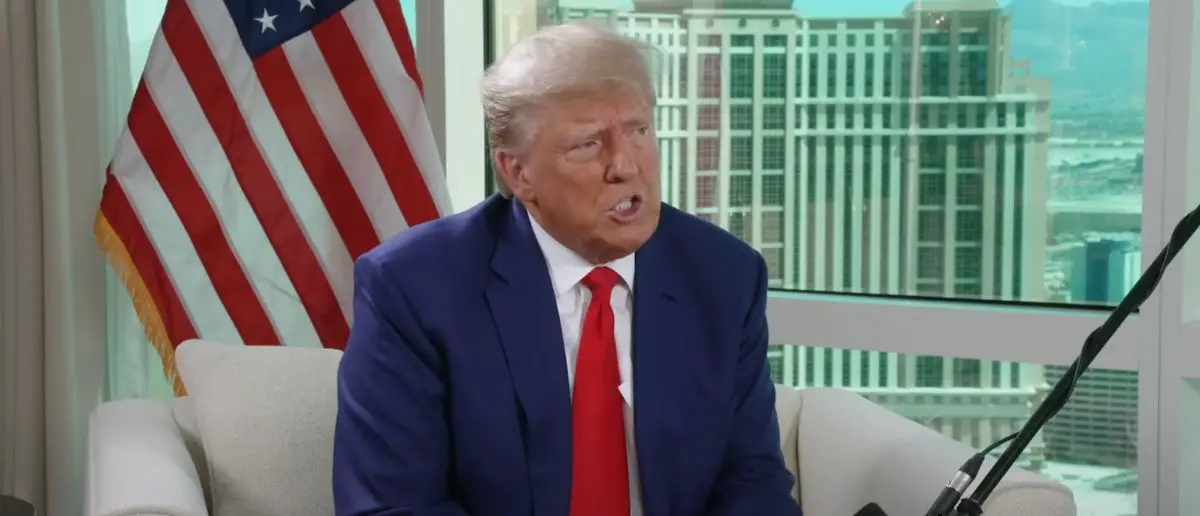
The White House provided the world an update directly from Donald Trump. It didn’t go the way he wanted.
Because President Trump’s chess move has backfired on him in this huge way.
Trump Faces Diplomatic Test as Iran Rejects Talks Amid Escalating Conflict
President Donald Trump’s administration is racing against time to secure a diplomatic breakthrough with Iran, as Tehran’s top diplomat has firmly rejected negotiations over its nuclear program while Israeli airstrikes continue to pound Iranian targets. With the Middle East teetering on the edge of an all-out conflict, the Trump administration’s push for swift diplomacy is seen as critical to avoiding direct U.S. military involvement in a war with Iran.
Iran’s Foreign Minister Abbas Araghchi made it clear on June 20 that Tehran will not entertain talks with the United States until Israel halts its ongoing military operations. “There is no room for negotiations with the U.S. until Israeli aggression stops,” Araghchi declared on Iranian state TV. His statement came just a day after President Trump signaled a potential two-week window for diplomatic engagement, explicitly downplaying the prospect of immediate U.S. airstrikes on Iran’s nuclear facilities.
The Trump administration’s openness to dialogue represents a strategic pivot, aiming to de-escalate tensions that have flared into an eight-day war between Israel and Iran. However, Araghchi’s precondition of a ceasefire has complicated efforts. Talks in Geneva involving Araghchi and counterparts from the UK, France, Germany, and the EU ended after three hours on June 20 without progress, though participants noted that discussions would continue. The Trump team faces mounting pressure to deliver results before the conflict spirals further.
On the ground, the violence shows no signs of abating. Israel reported striking Iranian missile facilities overnight, while an Iranian missile landed in southern Israel. Casualty figures remain murky, but Iran claimed on June 16 that 240 people had been k*lled in Israeli attacks, while at least 24 Israelis have died from Iranian strikes. The relentless exchange of fire goes to show the urgency of Trump’s diplomatic gambit to prevent a wider war that could draw in U.S. forces.
The Trump administration’s challenge is compounded by Israel’s dwindling supply of missile interceptors, a critical issue as Iran continues to launch volleys of missiles. According to a June 18 report by the Wall Street Journal, Israel’s stock of long-range Arrow interceptors is running low. Israel also relies on U.S.-made THAAD batteries to counter medium-range ballistic missiles, but replenishing these could strain U.S. resources.
Brandan Buck, a research fellow at the Cato Institute, warned that the U.S. faces tough choices if Israel’s interceptor stocks are depleted. “If they truly do run out… that’s going to put us in a position in which we have to make some serious decisions,” Buck said. The U.S. could be forced to divert THAAD interceptors from Ukraine, those designated for Taiwan’s defense, or even its own national reserves, as surging domestic production in time is unlikely, Buck noted.
President Trump, known for his deal-making instincts, has prioritized diplomacy to avoid entangling the U.S. in another Middle Eastern conflict. His administration’s restraint in ruling out immediate airstrikes on Iran’s nuclear sites reflects a calculated effort to keep options open. Yet, the clock is ticking, as prolonged Israeli-Iranian hostilities could force the U.S. into a corner, especially if Israel’s defenses falter.
Reporter: "Mr. President, what do you say to the Supreme Leader of Iran who says that they will not surrender?"
President Trump: "I say, 'Good luck.'"
Khamenei really doesn't know who he's f*cking with right now.
— 𝗡𝗶𝗼𝗵 𝗕𝗲𝗿𝗴 ♛ ✡︎ (@NiohBerg) June 18, 2025
The Trump administration is also navigating domestic pressures. An all-senators classified briefing on the Israel-Iran conflict is set for Tuesday, marking the first time the full Senate will be briefed on the crisis. The session, confirmed by two sources familiar with the plans, will feature key figures like Director of National Intelligence Tulsi Gabbard, CIA Director John Ratcliffe, Deputy Defense Secretary Steve Feinberg, Chairman of the Joint Chiefs of Staff Gen. Dan Caine, and Deputy Secretary of State Chris Landau.
Lawmakers from both parties have demanded clarity from the administration, particularly as tensions rise. Some, like House Minority Leader Hakeem Jeffries, have emphasized constitutional checks on military action. “The authority to declare war belongs solely to the United States Congress. President Trump and his administration must refrain from engaging in offensive military action in Iran without the explicit approval of the House of Representatives and the Senate,” Jeffries stated on X.
Despite such calls, presidents from both parties have historically argued that congressional approval is not required for limited military strikes. Trump’s team appears to be banking on diplomacy to avoid testing that precedent, focusing instead on coaxing Iran back to the negotiating table. The administration’s ability to secure a ceasefire could determine whether this approach succeeds.
The stakes are high for Trump, who campaigned on keeping America out of costly foreign wars. A failure to broker a deal could embolden Iran, weaken Israel’s defenses, and force the U.S. into a military role it has sought to avoid. The administration’s diplomatic efforts are thus a critical test of Trump’s leadership in a volatile region.
Meanwhile, the international community watches closely. The stalled Geneva talks highlight the difficulty of aligning Iran, Israel, and Western powers. Trump’s team must navigate not only Iran’s defiance but also Israel’s security needs, all while maintaining U.S. strategic interests in the region.
The coming days will be pivotal. With Israel’s interceptor stocks dwindling and Iran showing no signs of backing down, the Trump administration’s window for diplomacy is narrowing. A failure to secure a breakthrough could push the U.S. closer to a conflict it has so far avoided, testing Trump’s ability to deliver on his promise of peace through strength.
As the crisis unfolds, the administration’s focus remains on de-escalation. The outcome of the Tuesday Senate briefing and ongoing diplomatic efforts will likely shape the next steps in this high-stakes showdown, with global implications hanging in the balance.
Stay tuned to the DC Daily Journal.





